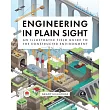Stefano Passerini is Professor at Sapienza University of Rome and Distinguished Senior Fellow at Karlsruhe Institute of Technology since January 1, 2023. His research focuses on the basic understanding and development of materials for high-energy batteries and supercapacitors, with the goal to create sustainable energy storage systems from environmentally friendly and available materials and processes. Co-author of more than 700 scientific papers (Scopus H-Index: 115), a few book chapters and several international patents, he has been awarded in 2012 the Research Award of the Electrochemical Society Battery Division. Since 2015 he is acting as Editor-in-Chief of Journal of Power Sources. He has been nominated Fellow of the International Society of Electrochemistry (2016) and the Electrochemical Society Inc (2020). Since 2019 he is a member of the Leopoldina Academy of Science.
Linda Barelli is Associate Professor at University of Perugia. Deputy coordinator of the Sub-programme 2 within the EERA Joint Programme on Energy Storage. Scientific responsible of the e-energy storage and hydrogen laboratory at University of Perugia. Her field of research includes energy storage, renewable power generation and their integration in power system; fuel cell/electrolyzer and open/closed battery technologies.
Manuel Baumann is a senior researcher and at the Institute for Technology Assessment and Systems Analysis of the Karlsruhe Institute of Technology. He was coordinator of the sub-program 6 "Energy storage: Techno-economics and sustainability" of the Joint Program Energy Storage of the European Energy Research Alliance (EERA) until 2022. From 2019 to 2022 he was a lecturer for energy systems at Aalen University. His research interests are technology assessment, decision-making methods, techno-economics, and life cycle assessment of energy storage technologies
Jens Peters is distinguished Ramón y Cajal research professor at the Department of Economics, University of Alcalá, Madrid. His research activity comprises the prospective sustainability assessment of emerging battery technologies with a focus on resources and recycling, but also policy analyses in the field of low emission vehicles and urban mobility. In parallel, he is working for the Joint Research Centre of the European Commission on the development of the future carbon footprint rules for batteries.
Marcel Weil received his Ph.D. degree at the IWAR Institute of TU Darmstadt. He is a scientific group leader since 2007 in the field "Research for Sustainable Energy Technologies - RESET" at Karlsruhe Institute for Technology (KIT-ITAS) and since 2011 a scientific group leader at the Helmholtz Institute Ulm for Electrochemical Energy Storage (KIT-HIU), responsible for "Resources, Environment and Sustainability". He is a principal investigator of the "Post Lithium Storage - POLIS" Cluster of Excellence. His research focuses on prospective system analysis for emerging technologies and life-cycle oriented economic, ecological, and social assessments of future energy technologies.



 天天爆殺
天天爆殺  今日66折
今日66折 



























 博客來
博客來 博客來
博客來 博客來
博客來 博客來
博客來 博客來
博客來